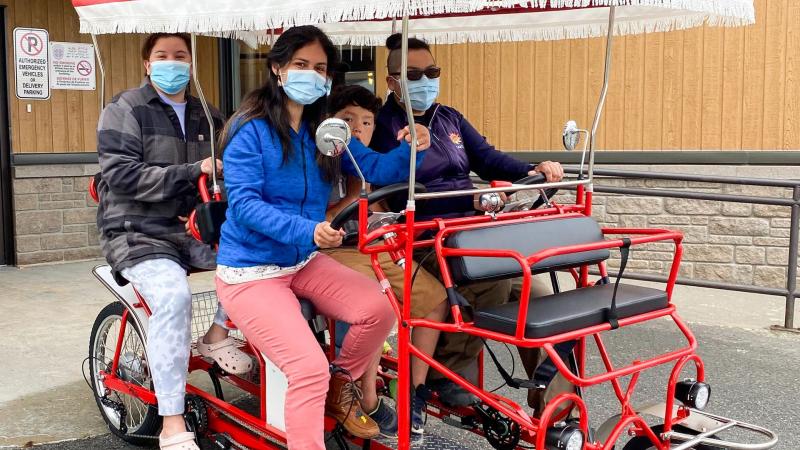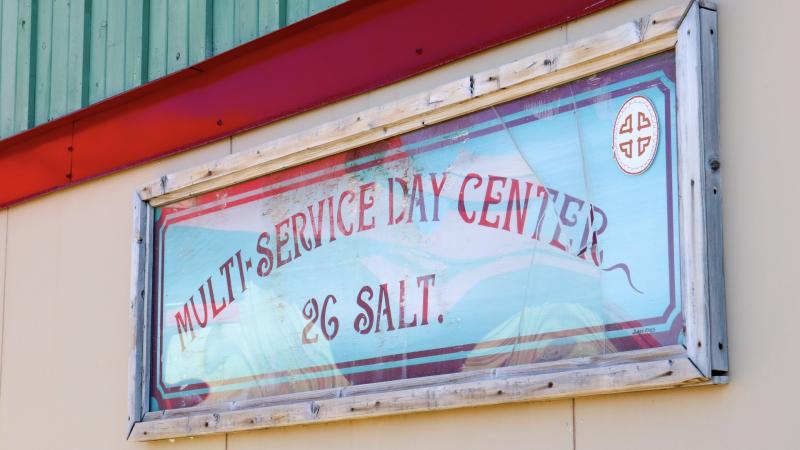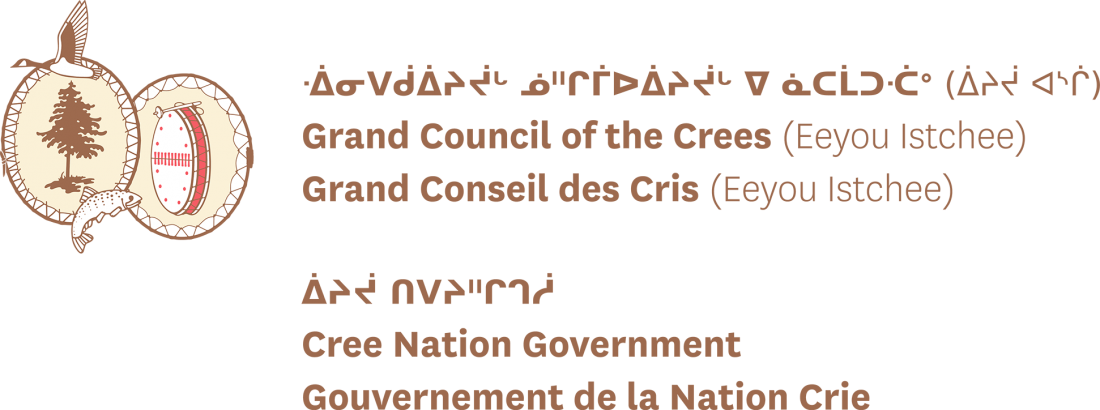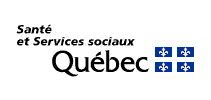Semaine nationale des proches aidants
Nous tenons à remercier tous les aidants – professionnels, membres de la famille, amis, membres de la communauté – pour leur travail acharné et leurs efforts afin d’assurer le bien-être des membres les plus vulnérables de notre communauté.
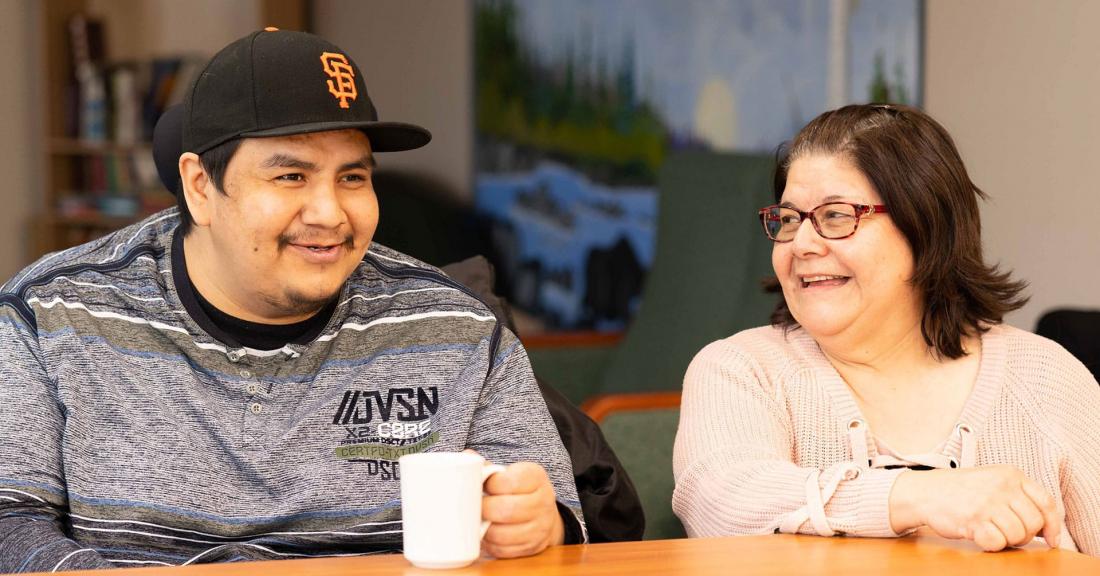
Nous sommes nombreux à être des aidants, surtout si nous avons des parents âgés ou des enfants adultes avec des besoins particuliers. De plus, la plupart d’entre nous auront besoin de soins en vieillissant. Joignez-vous à nous pour célébrer le rôle essentiel des aidants en témoignant votre gratitude à un aidant dans votre famille ou votre communauté.
Qu’est-ce qu’un aidant?
Un aidant est toute personne qui assiste une personne qui a besoin d’aide dans ses activités de la vie quotidienne. Il peut s’agir de professionnels formés, mais ce sont souvent des membres de la famille, des amis ou des membres de la communauté. Les aidants professionnels (par exemple des travailleurs en soins à domicile) sont formés pour favoriser le bien-être physique et émotionnel des personnes vulnérables d’une manière sécuritaire et respectueuse qui préserve la dignité de la personne qui reçoit les soins. Ils offrent également du soutien et de la formation aux aidants naturels et aux autres aidants rémunérés.
Découvrez les histoires d'aidants naturels
George Tapiatic (travailleur en soins à domicile)
George est travailleur en soins à domicile à Chisasibi depuis 2016. Son travail aide les usagers à demeurer autonomes tout en recevant des soins à domicile.
Rencontre avec George.
Hello my name is George Tapiatic.
I work in homecare.
It's been 2 years working as homecare worker, full time. I worked there before in 2016.
The reason why I thought of working there is to help elders and the one's that could not help themselves move around.
That is why I thought of working there.
Our job requires us to go see clients.
We help them get ready for their day, we wash/bathe them, we help them sit on their chairs, if they have a wheelchair.
Just to help them get started with their day.
The reason why I took this job is my grandmother was getting more elderly.
I couldn't take her every time I was asked to take care of her, being asked to sit with her whenever they (family) would leave town.
I would tell my family I couldn't take her because I told them I wouldn't know what to do.
Then this course came, I took it, I got chosen, I finished it and graduated.
I didn't have the chance to take care of my grandmother because she had passed away.
But I still thought of continuing to work, I like working there.
Without this job, if we didn't have homecare.
It would be hard for the people/clients we go see, to find someone to help them get up, or anything else that they need to do before getting started on their day.
This job is important to me.
I think it would be hard for someone, if we didn't have homecare workers.
As we have people who cannot help themselves, some can't walk, some elders would have a hard time to bathe themselves.
Helping people who cannot help themselves move around is what I like to do in my job.
Caroline Annie Matthew (usagère)
Caroline a subi un accident vasculaire cérébral (AVC) en août 2003. Depuis, elle a besoin d’aide pour se déplacer. Elle a besoin d’un fauteuil roulant, mais elle conserve son autonomie grâce au soutien hebdomadaire des travailleurs en soins à domicile du Conseil Cri de la santé et des services sociaux de la Baie James (CCSSSBJ).
Rencontre avec Caroline.
My name is Caroline Matthew.
I've been receiving home care since 2005.
I had a stroke on August, 2003.
They sent me to Montreal, and I got back in October, 2003.
I stayed at the hospital since 2004, to have rehab.
[....] my mother's house renovating.
I wanted to live back there, back home, back with her.
I lived here since 2017 (current home).
I like receiving home care.
They help me to get dressed.
They wash me, I receive showers, Monday, Wednesdays and Fridays, three times a week.
Five times a week
(How often do HCW come?).
So, morning, afternoon,twice afternoon and evening, four times a day.
They put my laundry in the washer I put it back in the dryer, when they come back, they fold it.
Me, I just stay. Playing cards during the day, or washing dishes.
Leigh-Ann Gates & Annie Bearskin (aidantes naturelles)
Annie et Leigh-Ann ont pris congé de leur travail pour s’occuper de Juliet Head Bearskin, qui est respectivement leur mère et leur grand-mère. Juliet est tombée et s’est fracturé la hanche en décembre 2020, et elle a reçu un diagnostic de démence dans les semaines qui ont suivi l’accident. Elle a besoin de soins et d’aide de la part de sa famille et de travailleurs en soins à domicile.
Rencontre avec Leigh-Ann et Annie.
My name is Leigh-Ann Gates, and I live with my grandparents, Clifford and Juliet Bearskin.
I care for them. I have a full time job.
I'm the director of three childcare centres here in Chisasibi.
I'm at home in the evenings and weekends with my grandparents.
My name is Annie Bearskin, I am the only daughter of Clifford and Juliet Bearskin.
My father's 92 and my mom is 83.
And I retired in [...] 2019.
And I have [...] been there.
We live in the same cluster, so we have tried to be there for them whenever they need something, especially whenever they need help, especially for documents and bills, things like that.
I take care of that now.
We've lived with them for the past 20 years.
So, since we've been living with them and they've always been helping them in different areas as they've been ageing.
But I would say [....] this past year, right, is when they needed, especially my grandmother, the most help.
She had a fall...December...in December, 2020. Yes.
It's been almost a year now since she had her fall and needed hip surgery.
Since that fall, it's when she needed a lot of help.
And yes, before that, they have been very mobile and they have done a lot... ...a lot of that on their own, done a lot of things.
Just kept an eye on them.
So since December, she has required a lot of helpbecause she wasn't able to move around as well as she could.
Plus, she was also diagnosed with dementia. Which also is a major challenge right now. And, this is where she informed us, my daughter Leigh-Ann,[....] that, [....] that's before her fall, that's when she was diagnosed with, dementia.
So there were things that were going on with her that really needed to be taken care of, so the family met, so we tried to, especially for me, it's easier to go and help her out, because they live in the cluster and... tried to help out as much as possible, and we haven't had any home care services during that time, and it's only in June that they really started caring for her.
I guess for us living there, I have three children and I'm very busy with sports in school and things like that.
My husband and I are very involved in all of their interests.
So, one of the challenges with us, living with them, sometimes is when we have to leave the house and having somebody there, we don't want to leave them alone.
And sometimes it's hard to find somebody to come and stay in for a couple of hours if they're busy also.
Sometimes, extended family, I guess my siblings it's hard to have to help there. [....]
I mean, the home care are there now, it's a big weight off of my shoulders, because I would worry what's going on at home while they're trying to cook for themselves and worry that they will leave burners on and so there is a lot of things that I would worry about before we had the home care there.
Which I'm very thankful for.
I think I've always been very close to my grandparents.
Growing up, I would go along with them in the bush, they took care of me and it's one thing, I guess we getting back to everything they've done for me growing up.
Linda Pachanos-Quachagen & Martha Tapiatic-Pachanos (aidantes naturelles)
Linda prend soin de sa mère, Martha, 95 ans, qui aime la nourriture traditionnelle. Être proche-aidant n'est pas un rôle simple; il faut être capable de surmonter plusieurs défis, pour assurer le bien-être d'un proche sous sa responsabilité. Linda s'occupe de son mari et de sa mère, et elle est fière d'être proche-aidante.
Rencontre avec Linda et Martha
LINDA
My name is Linda Pachano Quachegan and this is my mother. Her name is Martha Tapiatic-Pachanos.
And I've been a caregiver since I got married. I started looking after things then. And my mother moved in with us since 2007. I like it and I'm happy.
When we're in our cabin in the bush, I find it more easier 'cause it's one big room. But here there's lots of rooms. And, the house here is - the way it's built for a person whose on disability I guess you could say it's hard.
Look at the door how you come in. Then you have to go through a long hallway and her walker. She has to manoeuver it in different positions to go through doors. And I help her come up the stairs and the ramp.
The thing I enjoy most about being a caregiver is taking her outside. Taking her for drives and just being out - out in the Bush.
I've learned it's very different from looking after children, which I've been a teacher before and then looking after adults, it's more harder, I find it. Especially when they're this old.
She's 95 and she doesn't bend as easily like before. So it's more harder, but I love it.
MARTHA
I like it here because I get to eat traditional food.
Rather than eating non-traditional food at the hospital.
I prefer staying here but wouldn't mind staying in the hospital, where they would be able to look after my medication.
Sometimes, I tend to forget whether I have taken my medication.
I am always afraid that I am taking them again.
Avez-vous besoin d’aide?
Le Centre de services pluridisciplinaires de jour (CSPJ) procure un espace sûr et collaboratif aux membres de la communauté pour accéder à des services professionnels comme la physiothérapie, l’ergothérapie et l’orthophonie. Bien que les programmes varient en fonction des besoins de chaque communauté, le personnel du CSPJ s’efforce de créer un environnement stimulant avec des activités allant des ateliers d’art et d’artisanat aux programmes d’exercices et aux sorties.
Le transport et les repas sont fournis, ainsi que des « repas à domicile » pour les personnes qui ne peuvent se rendre à l’établissement. Votre équipe locale du CSPJ se soucie réellement du respect de la dignité et du bien-être des usagers. Si vous avez besoin d’une pause dans votre rôle d’aidant, le CSPJ est là pour vous.
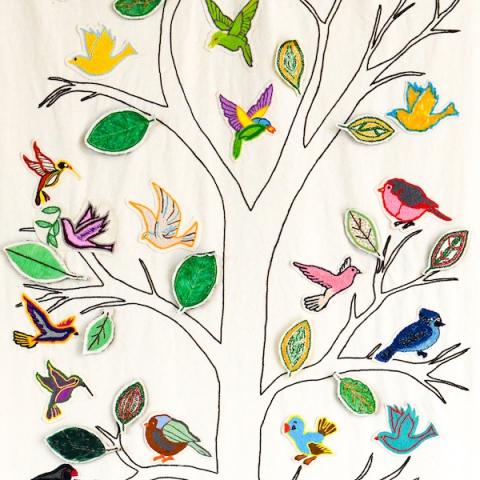
Le saviez-vous ?
Les CSPJ offrent :
-
un répit pour les soignants pendant la journée
-
des activités qui varient en fonction des besoins de chaque communauté (par exemple, bricolage/ sorties/ exercice)
-
repas et transport fournis
Apprenez-en plus sur le programme de soins à domicile et en milieu communautaire en cliquant ici. Vous pouvez nous contacter si vous avez besoin d’aide pour les soins d’un proche.
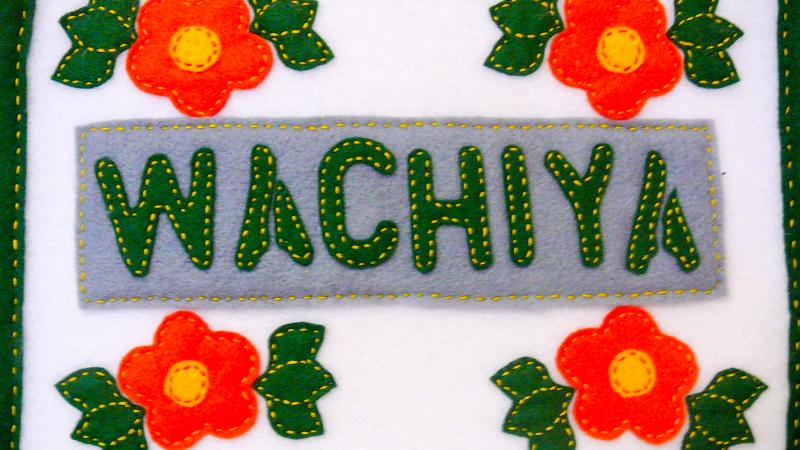
Les soins à domicile regroupent un ensemble de services destinés à vous aider, à vivre confortablement et en toute sécurité chez vous.

Nanaahkuu Wiichihiiweukamikw / Centre de jour multiservices (MDSC) est un lieu de rassemblement, de guérison et d'apprentissage.
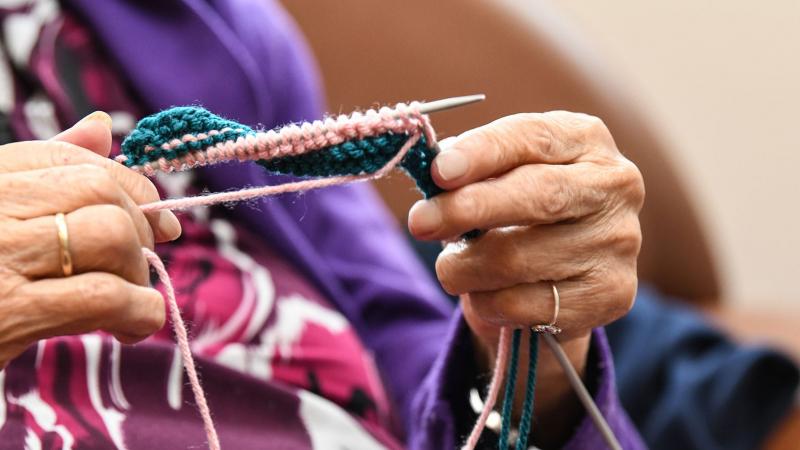
La maladie d’Alzheimer touche les parties du cerveau responsables de la mémoire, de la pensée et du langage.
